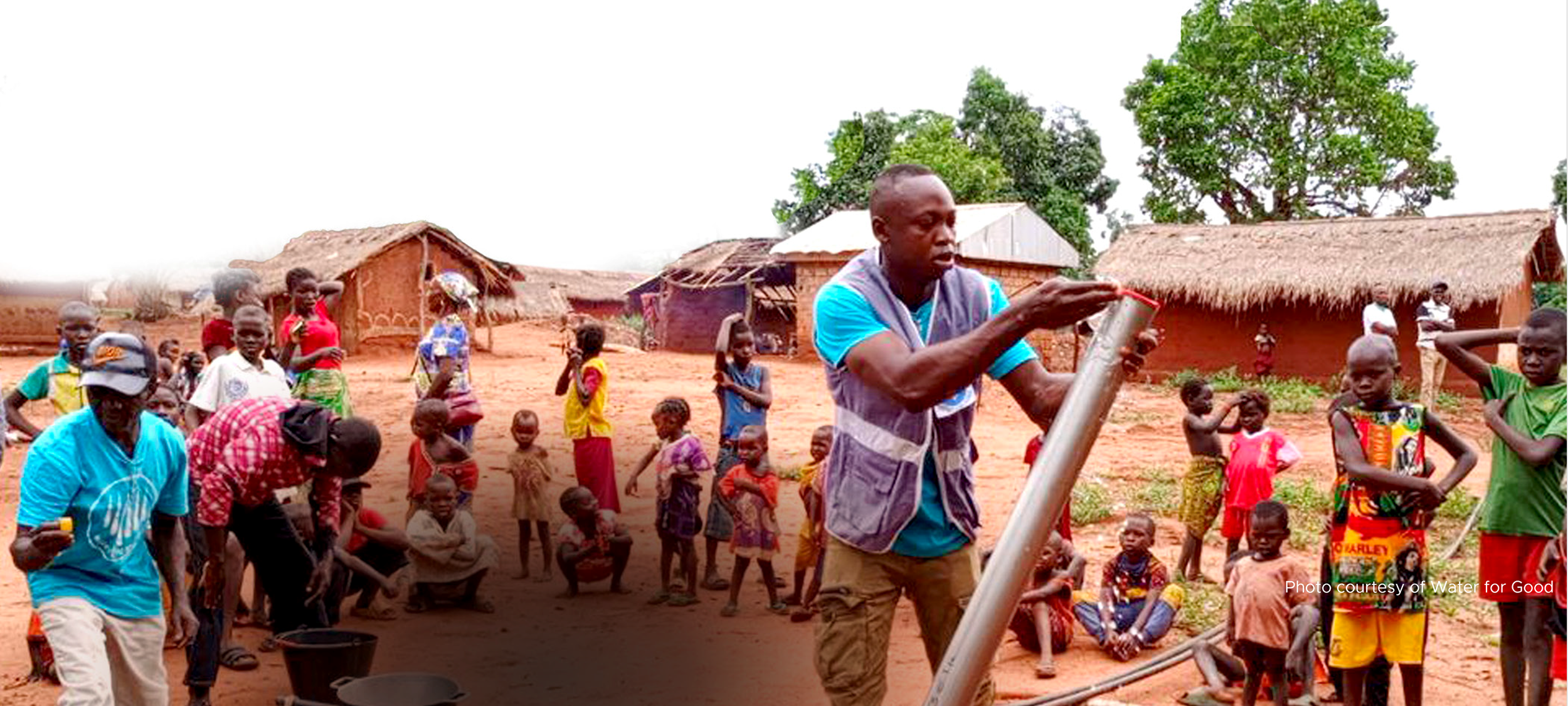Billions of people lack access to safe, reliable, and affordable water, sanitation, and hygiene (WASH) services. This has profound consequences for their health and welfare, especially for children under the age of five. Conventional ways of addressing this challenge, which focus on installing hardware such as taps and toilets, often fail to deliver sustainable WASH services or to reach the people with the greatest need.
To address this challenge, the Osprey Foundation supports WASH initiatives that deliver effective, sustainable, and scalable services in underserved communities. We support organizations that work to strengthen the local systems for delivering sustained WASH services through integrated, multi-pronged programs. We also take risks on innovative models that are at too early a stage for many other funders but have the potential to create game-changing improvements in the way WASH services are delivered. Complementing these efforts, we advocate for change within the WASH sector through collaboration with other funders and by challenging the sector to adopt approaches with the potential for greater impact.
Our Partners in Action
Water for People
Water for People seeks to bring water, sanitation, and hygiene services to all people worldwide in a way that ensures those solutions will be sustainable. To do so, it partners with communities, governments, and businesses in nine countries—Bolivia, Guatemala, Honduras, Nicaragua, Peru, India, Malawi, Rwanda, and Uganda—to implement the systems. The organization then provides training and tools to help stakeholders maintain the systems over time. Water for People’s model is called Everyone Forever—because its mission is to reach every person in a district and make sure that access lasts forever. To that end, it focuses on building piped infrastructure, establishing supply chains for needed parts, protecting water supplies, and training mechanics. In addition, it conducts policy advocacy and works to build the municipal infrastructure by creating water and sanitation utilities. Once a district reaches certain “Everyone” and “Forever” milestones, Water for People gradually exits that geography.
The Osprey Foundation is one of Water for People’s strongest supporters. Its general operating support has enabled the organization to help 3.3 million people access reliable water services since 2011. And, with targeted funding from Osprey, in 2018 the organization reached its first “Forever” milestone in San Pedro, Bolivia, indicating that the systems there are sustainable over the long term.
Agenda For Change
Agenda for Change is a collaboration among organizations working to achieve sustainable delivery of water, sanitation, and hygiene (WASH) services for all people by 2030, as set out in the United Nations’ Sustainable Development Goal 6. Agenda for Change members work closely with governments and others in the sector to strengthen WASH systems. They do so by addressing the factors that comprise these systems, such as service delivery, financing, regulations, and monitoring; increasing the capacity of those sustaining the system, including governmental agencies, private companies, and civil society organizations; and promoting a collaborative network of actors and relationships.
Agenda for Change’s new strategy aims to solidify and operationalize its transition to being a fully country-led global collective. From 2023 through 2026, Agenda for Change will focus on three complementary priorities:
Ensure country collaborations are effective, efficient, and strong
Influence others to adopt a collective-action approach to strengthening systems
Build evidence and knowledge for sharing knowledge with member, funders, and other stakeholders
To achieve these goals, Agenda for Change will expand its global footprint through strategic partnerships and rollout of a new membership structure.
What We are Reading
Western States Opposed Tribes’ Access to the Colorado River 70 Years Ago. History Is Repeating Itself.
Many of the 30 federally recognized tribes in the Colorado River Basin still have been unable to access water to which they’re entitled. A recent ProPublica and High Country News investigation found that Arizona for years has taken a uniquely aggressive stance against tribes’ attempts to use their water.

